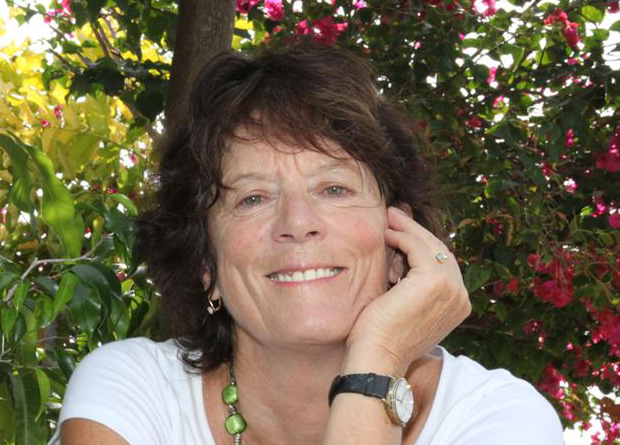Last Thursday, students, faculty members and other literary enthusiasts filed into Blow Memorial Hall, buzzing with excitement about the evening’s upcoming events. The seats in Blow 201 filled up quickly and the hosts were soon pulling in extra chairs to accommodate the crowd. A hush fell over the room as Nancy Schoenberger, Director of Creative Writing at the College of William and Mary, rose to address the group.
She began her introduction with a quote from the evening’s speaker.
“To write, you must read,” Schoenberger said, the phrase hitting home among the many English majors and aspiring poets in the crowd. However, one person knows it better than any other — after all, she’s the one who said it.
Rosalind Brackenbury was recently selected as the 2012 Donaldson Writer in Residence at the College. The Donaldson Writer in Residence Program, endowed by Professor Scott Donaldson and his wife Vivian, is an annual program at the College that hosts one distinguished writer each year to work with and mentor students in the English department over the course of several advanced writing workshops and seminars. Brackenbury has written 12 novels and five collections of poetry. Schoenberger looks forward to watching Brackenbury use her skills as she works with students at the College this semester.
“A writer in residence can show students what a real writer looks like, how they live and how they write,” Schoenberger said. “It’s a great experience. There are so many talented and creative students at William and Mary, and our program is one place they can come and flourish.”
A committee chooses each writer in residence every year.
“We have a committee in the department, and we meet to find people who have reputations as good writers and teachers and who are available to come for a year or a semester,” Schoenberger said.
However, Brackenbury is no stranger to the College or even to the Donaldson Writer in Residence Program. She was the Writer in Residence six years ago, and enjoyed her experience so much that she decided to return.
“I had a good time here six years ago,” Brackenbury said. “The students were great, and I thoroughly enjoyed it. It’s a nice place to teach.”
Brackenbury kick-started her tenure as Writer in Residence by reading excerpts from her latest collection of poetry, “The Joy of Nearly Old.”
Brackenbury’s poems ranged from a humorous description of her college days in a poem called “Letters to Home” to a deeper, more emotional theme in her poem, “Love Lines,” where she contemplates a life in which we bore our emotional scars as physical lines on our bodies.
“I thought it was pretty straightforward as far as poetry readings go,” Wilson Collins ’13 said. “I think that she gets the idea that as a poet, it’s her job to put the wallpaper on, and she does it in a way that automatically translates, and so there’s very little work that has to be done by the reader.”
Brackenbury then moved to the main showcase of the reading, the excerpts from her new novel “Becoming George Sand.” The novel, part historical fiction and part narrative, ties the modern- day life of the protagonist, Maria, to the era and struggles of early female author George Sand.
Andrew Miller ’13, who attended the reading, said he was impressed with the excerpts.
“I liked the fiction,” he said. “I like it when people write fiction about people who really existed. There are always incomplete parts in the historical records, and so it’s always interesting when people create from the things that we know, things that we don’t know.”
The praise for “Becoming George Sand” didn’t stop there.
“I thought it was splendid,” English professor Deborah Morse said. “After the last reading, I bought four copies of ‘Becoming George Sand.’ I sent it to my sister and other friends who were writers, one of which was the first biographer of Ramond Carver, and she said it was one of the best novels she had read in the last 20 years.”
In fact, the novel has roots here in Williamsburg. In fact, Brackenbury wrote the beginning of the book during her last stay as Writer in Residence when she was here previously.
“[My previous stay] was wonderful,” Brackenbury said. “I wrote the beginning of ‘Becoming George Sand’ in my room in Tucker. I remember writing the whole first scene.”
However, more than anything, Brackenbury is excited to spend her semester working with students at the College. She explained that when she was growing up, she was discouraged from writing and was told that writing was simply not something you did for a living.
“No one took writing seriously,” Brackenbury said. “It was just a hobby.”
Brackenbury noted that today, students are lucky enough to write and to be encouraged to write and to tell their stories.
“The fascination with stories is something very basic in humans,” she said.
Brackenbury said she hopes to spend the semester showing the College’s aspiring young writers that their dreams can become a reality.
“I just hope they’ll all have happy careers as writers,” she said. “I’m here to say it’s possible.”

